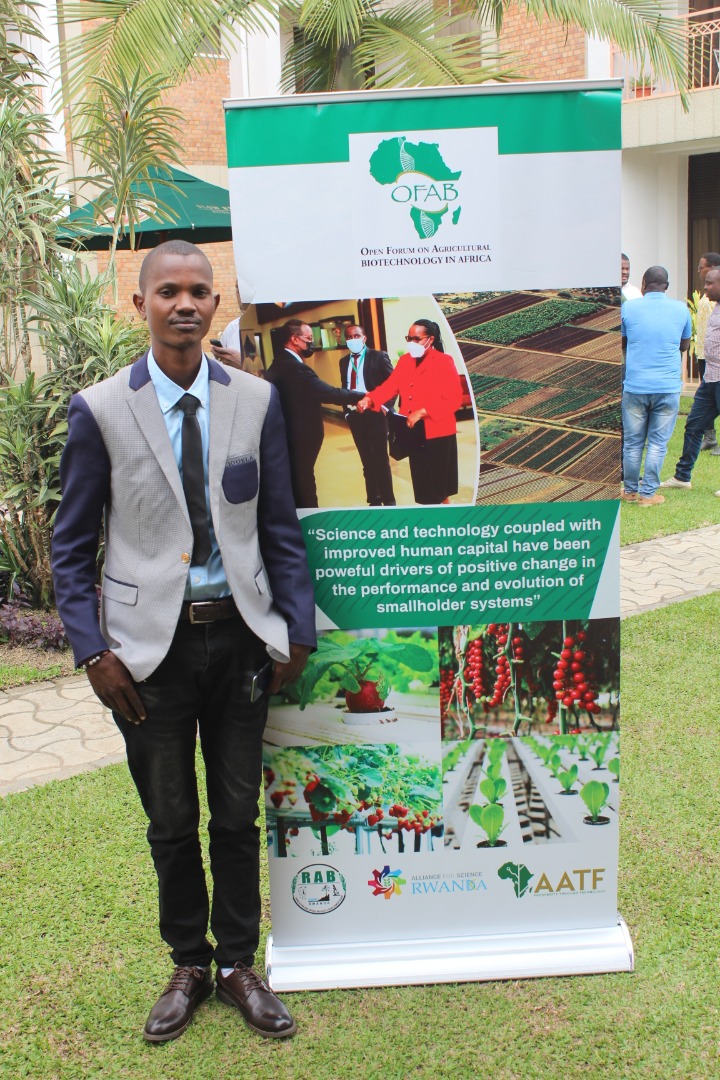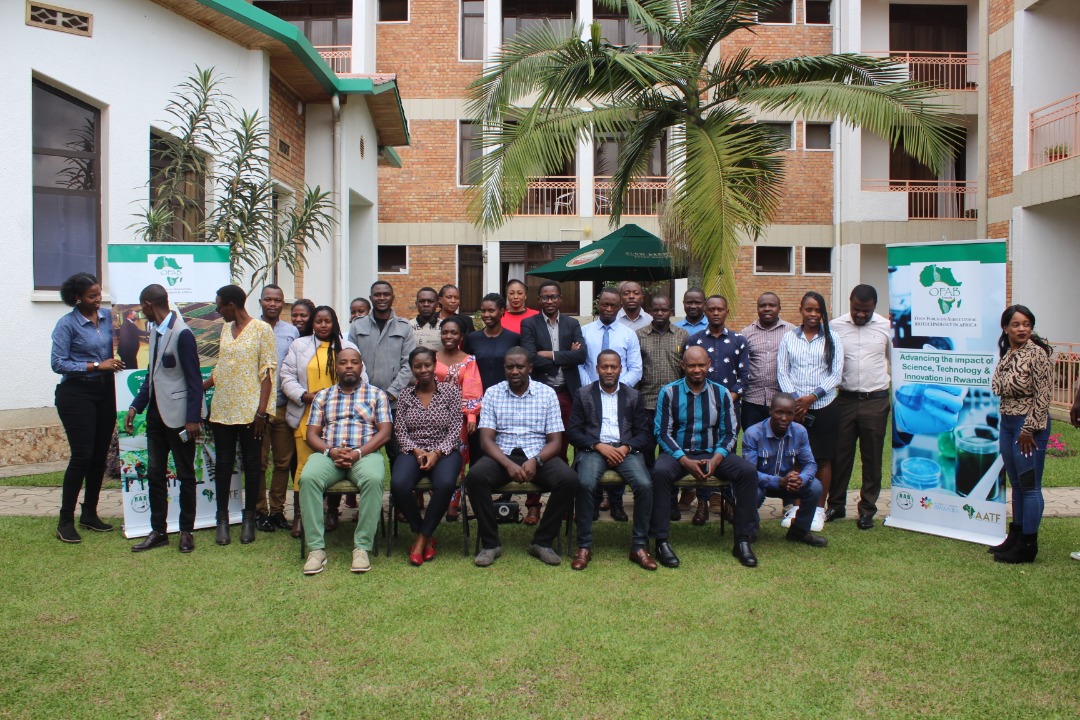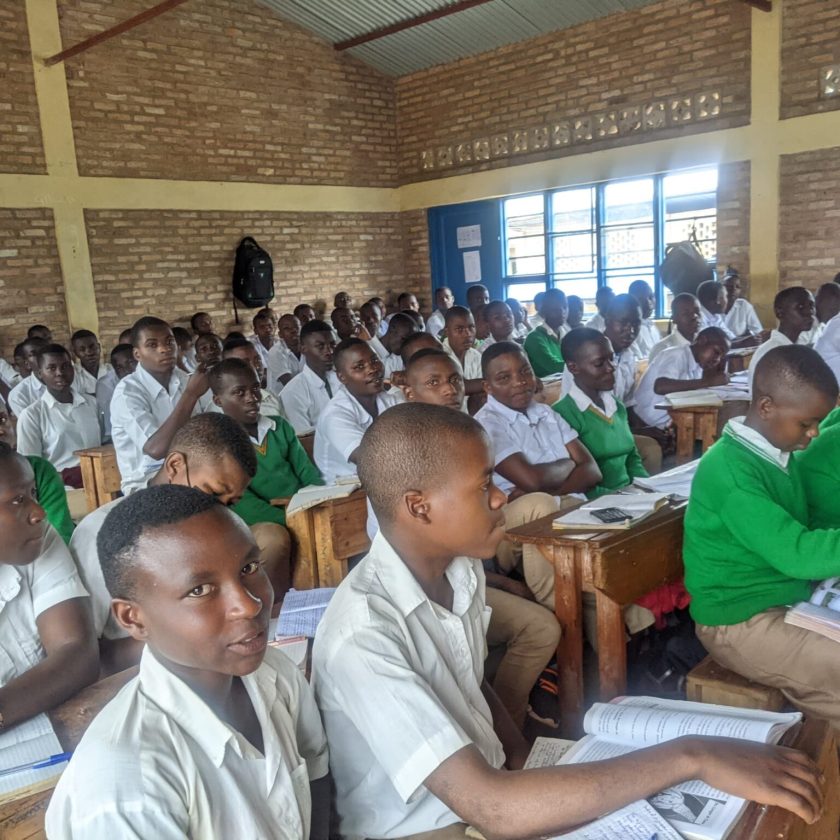By Diane NIKUZE NKUSI
The growth rate of the world population continues to increase day by day. World population projected to reach 9.8 billion in 2050 as United Nations revealed. It means that the resulting in a serious need to increase agricultural production by all means, among them there is the use of modern biotechnology in the production of genetically modified crops.
This will mean obtaining sufficient, healthy, safe and nutritious food needed to feed the world’s growing population.
Since Rwanda’s population is made up of young people, they can bring innovative practices to address food security issues through the adoption and acceleration of agricultural innovations, and technologies to boost productivity.
This topic is discussed in a two-day workshop organized by the Rwanda Chapter of the Open Forum on Agricultural Biotechnology in Africa (OFAB) in partnership with Rwanda Agriculture and Animal Resources Development Board (RAB).
RYAF is ready to use science, innovations and technologies in agriculture
Alice INGABIRE, representative of the Association of Young Professionals in Agriculture and Animal Husbandry (RYAF), said that the youth is the future of the agricultural sector, that why they must be informed and trained on the use of innovations and technologies including modern biotechnology in agricultural practices.
Ingabire states that biotechnology in the production of genetically modified crops will contribute to the increase of food in the market, especially as there is an increase in population while the land does not increase on the surface.
She also said that “the youth is a priority in the use of biotechnology to ensure the future of the agricultural sector, and there is need efforts to knowledge transfer so that better understanding agricultural technologies. This will help youth to be able to sensitize the rest of the population the benefits of using biotechnology”.
Young farmers have confidence in biotechnology in agriculture
Jean Pierre KIDAMAGE, a sesame and pearls farmer in NYAGATARE district, he said that after this workshop, he will share the knowledge gained with other farmers to learn more about science, innovations and technologies with the aim of adding value to his and their products and satisfy the markets.

He said that “The use of technology in agriculture will allow farmers to replace the practices used in traditional agriculture, ultimately increase the value of crops and satisfy the market.
INGABIRE Françoise, the chairperson of the association of young farmers “World Benefit”, which grows tree tomatoes and vegetables in RUBAVU district, said that “the role of young farmers is to shape, and change subsistence farming into market-oriented farming. This will help young people learn from the experiences of developed countries, check what one can borrow and bring to Rwanda to increase the value of the productivity in agriculture in order to satisfy the food need”.
OFAB has the confidence in young professional farmers
Dr Athanase NDUWUMUREMYI, Roots and Tubers Program Coordinator in Rwanda Agriculture and Animal Resources Development Board “RAB” who is also the Coordinator of the Open Forum in Agricultural Biotechnology “OFAB” Rwanda chapter, explains that “agriculture without young people can face a lot of problems, yet youth is the key player in accelerating the use of innovations and technologies in agriculture’’.
“The youth have an ability to capture and implement what they learn quickly, which is why they were brought here to discuss the future of agriculture through the use of science, innovations and technologies includes GMO”, Dr Athanase added.
He highlighted the importance of working with young farmers on a daily basis in implementing technology-enabled agriculture as some of them are getting trainings on GMO and use of modern biotechnology methods.
“As we continue to struggle to produce good quality seeds, we need young people to help us accelerate this biotech agenda as it is not well understood in Africa,” he said.
Dr Athanase believes in young people who will help change the mindset regarding general public concern based on speculation that GMO crops are not safe for human consumption and nature as whole.
Generally, countries with high yields of GMO productions continue to remain the same reaching from the United States, Brazil, Argentina, Canada, and China to list few, while in Africa, South Africa, Egypt, Nigeria, Kenya, Uganda to list few are dominate in both production and exports.
Safety assurance by international community
The World Health Organization (WHO) indicated that GM foods currently available on the international market have passed safety assessments and are not likely to present any risk for both human health and nature.
FAO also added that since GMO crops reached market, there is no effects on human health has been shown as a result of the consumption of such foods by the general population in the countries where they have been approved.
Currently, the law governing the use of GMO crops in Rwanda is still in preparation pending its approval.
Rwanda Environment Management Authority (REMA) has been working on draft law governing genetically modified organisms (GMOs) in Rwanda. The law is underway along with the National Biosafety Framework, biosafety policy and regulations.







